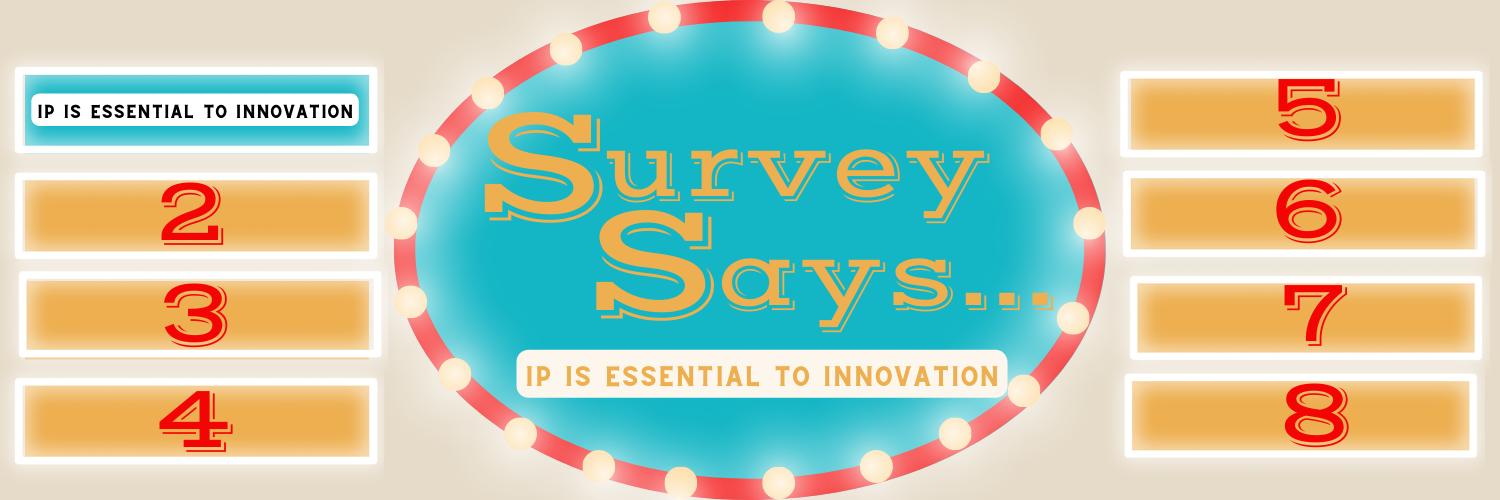ACT | The App Association members compete and innovate across the consumer and enterprise landscapes and invest heavily in their intellectual property (IP). Not only because it is the lifeblood of their products and our industry at large, but also because it represents their innovative drive, hard work, and dedication to progress within the app economy.
Small businesses’ IP—copyrights, patents, trademarks, and trade secrets—sets them apart from the competition, highlighting their identity and ingenuity. Recently, we issued a survey to a small focus group of our global membership to better understand the role that IP plays in growing and protecting their businesses. The resounding answer was that IP plays a significant role in protecting and preserving their business.
By surveying a small sample of our broader membership base, we gained valuable insight into the trends and issues that impact IP use and its protections globally. Here are a few of the highlights:
Trademarks:
- Almost three-quarters of respondents hold one or more trademarks.
- Sixty-two percent of respondents who own a trademark have trademarked their company name. Only 25 percent of our members with trademarks have trademarked their logo, 0 percent have trademarked their designs.
- Eighty percent of respondents with a trademark have experienced “cybersquatting,” or the practice of registering others’ names—especially well-known company and brand names—as internet domains, in the hope of reselling the domain to make a profit.
- Roughly one third of respondents with trademarks have experienced “brandjacking.” Brandjacking occurs when someone assumes the online identity of another entity to acquire that person’s or business’s brand equity.
- Only one in five respondents with a trademark license it to other companies.
Copyright:
- While 81 percent of respondents hold rights in a copyright, 55 percent have registered it with the U.S. Copyright Office. Of those who have not, cost and the complicated registration process are the primary barriers.
- One quarter of respondents who own copyrights have experienced some sort of copyright infringement. Of those who did, three quarters experienced domestic infringement, and one quarter experienced an international infringement.
- Half of these infringements were resolved by a demand letter, one quarter did not take action, and another quarter contacted the App Association for information on how to address the problem.
- Roughly 30 percent of respondents who own copyrights license them to others.
- Fifty-five percent of respondents obtain licenses to use third-party content in their products.
- Thirty-six percent of respondents use artificial intelligence (AI) in the development of works eligible for copyright protection.
Patents:
- Forty percent of respondents hold one or more patents.
- There are two types of patents: 1) utility patents, which protect the creation of a new or improved product, process, or machine and 2) design patents, which protect the ornamental design of a functional item. Of the focus group’s patent owners, 100 percent own utility patents.
- Of the respondents who hold patents, 10 percent have experienced patent infringement.
- Of those who have experienced infringement, 100 percent of instances were resolved by settlement.
- Ten percent of patent owners license their patent(s) to others.
- Forty-five percent license the use of patented products or technologies owned by others.
Standard-Essential Patents (SEPs):
- Sixty percent of respondents use one or more industry standards that contain patented technology, such as Wi-Fi 802.11, MPEG Dynamic Adaptive Streaming over HTTP, etc. Of that 60 percent, 0 percent have been approached about or have agreed to a license to use one or more SEPs in order to use the standard.
Too many of our members know the severe consequences of IP infringement, whether it’s customer data loss, interruption of service, revenue loss, or reputational damage. These survey results illustrate just how essential IP is for small developers, and it’s crucial that we, along with our copyright partners, continue fighting for stronger IP protections.
The App Association sees the vital importance of strong IP rights across the globe. We continue to advocate for intellectual property protections in federal, state, and international governing bodies.
Our advocacy in 2022 is more important than ever, and we look forward to working with and for our members to protect the valuable IP they currently hold as well as their future ideas and innovations.
